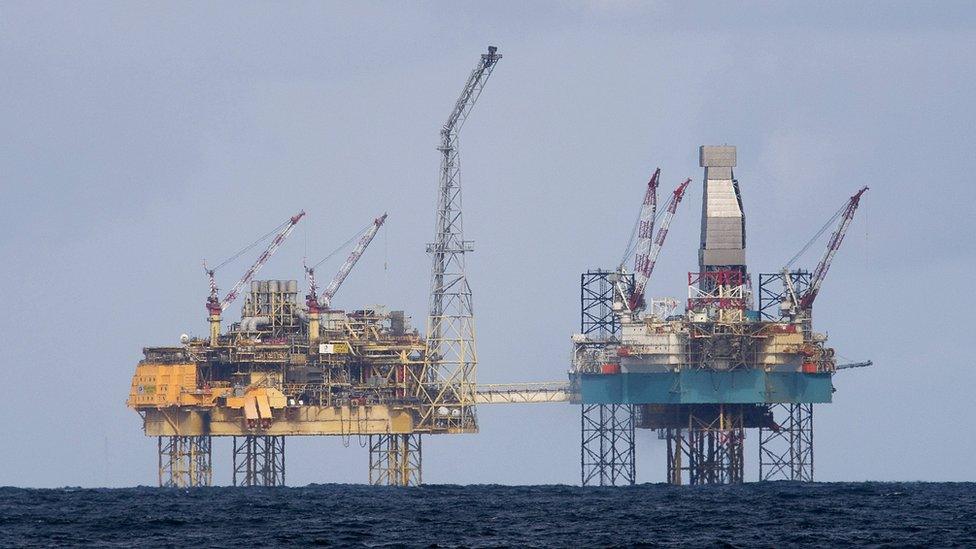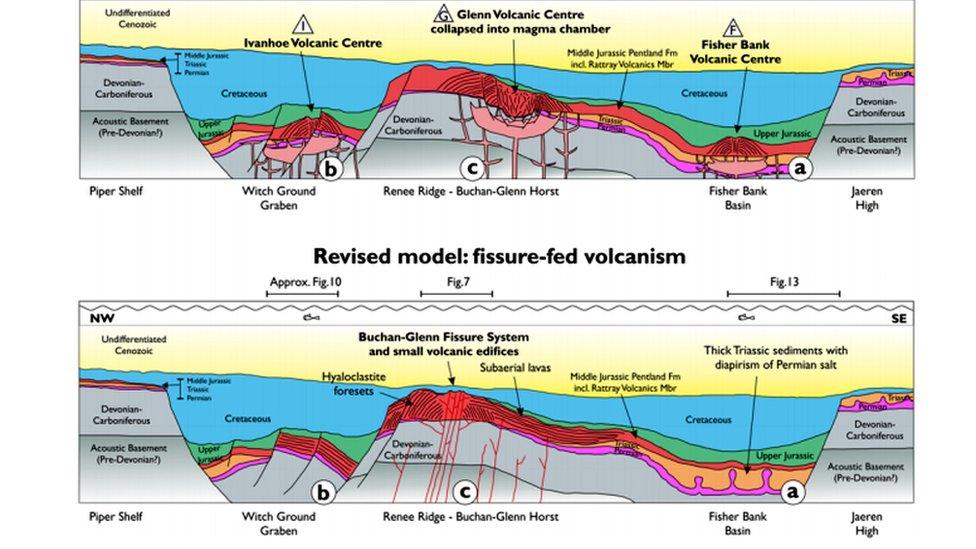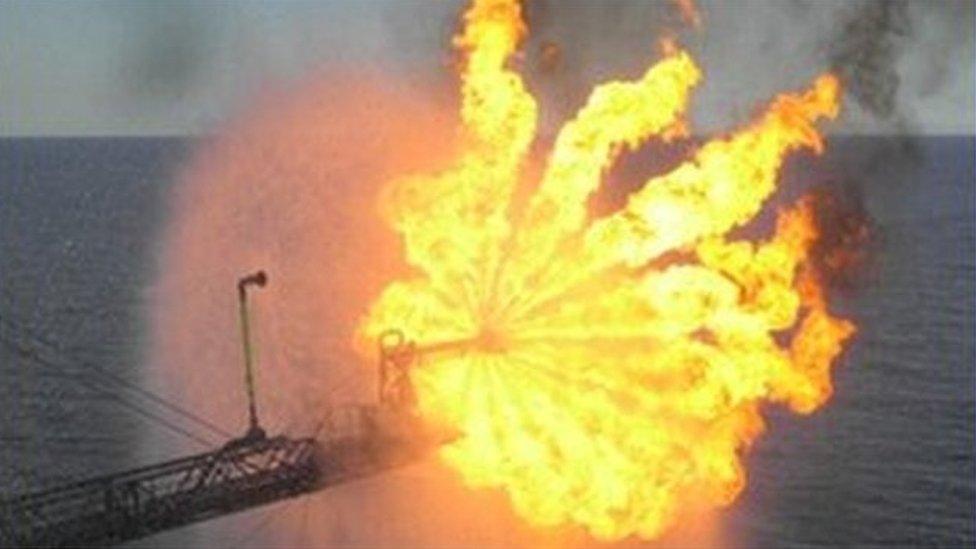North Sea area could be explored after geologists dismiss volcano theory
- Published

A new section of the North Sea could open for oil and gas exploration after geologists dismissed the theory there were Jurassic volcanoes in the area.
The Rattray Volcanic Province had been thought to contain empty magma chambers, making it unsuitable for oil formation.
As a result, the 7,000 sq km area of the central North Sea was dismissed as a potential area for exploration.
But geologists at the University of Aberdeen have now challenged that view.
Jurassic era
The Rattray Volcanic Province was thought to contain the remains of three volcanoes that erupted 165 million years ago in the Jurassic era.
A study led by Dr Nick Schofield and PhD student Ailsa Quirie, from the University of Aberdeen's School of Geosciences, with colleagues from Heriot-Watt University and the University of Adelaide, has concluded that belief was wrong.
The team says 3D imaging now suggests there had been lava fissures - or cracks - rather than a volcanic eruption.
This does not necessarily mean that the area contains oil, but companies could now assess its potential.

Dr Schofield said: "What we found has completely overturned decades of accepted knowledge.
"Previously, it was believed the area contained old magma chambers - the plumbing systems of three Jurassic-era volcanoes - that effectively ruled out the potential for oil and gas discoveries.
"However, our study has shown these volcanoes never existed at all, and that the fireworks preceding the North Sea's attempt to create an ocean with Europe came via a series of lava fissures.
"Essentially this gives us back a huge amount of gross rock volume that we never knew existed, in one of the world's most prolific regions for oil and gas production."
'Prime example'
He explained: "There is a huge area under there that hasn't been looked at in detail for a long time, because of the previously incorrect geological model.
"That's not to say that exploration wouldn't be challenging, but technology is constantly improving and there are still big discoveries being made in the North Sea, as we've recently seen in the Central Graben and Viking Graben areas.
"As the old saying goes, often the best places to look for oil are in places near to where you've already found it.
"The North Sea is a prime example of that."
Katy Heidenreich, industry body Oil and Gas UK's operations optimisation manager, said: "This interesting academic research is an excellent example of the value that can be created by making data more widely available.
"Fresh and pioneering thinking combined with new data analysis techniques can challenge previous exploration models and deepen our understanding of the significant UK North Sea resources yet to be recovered.
"It places us in a good position to realise our ambitions to add a generation of productive life to the UK Continental Shelf."
- Published15 November 2018
